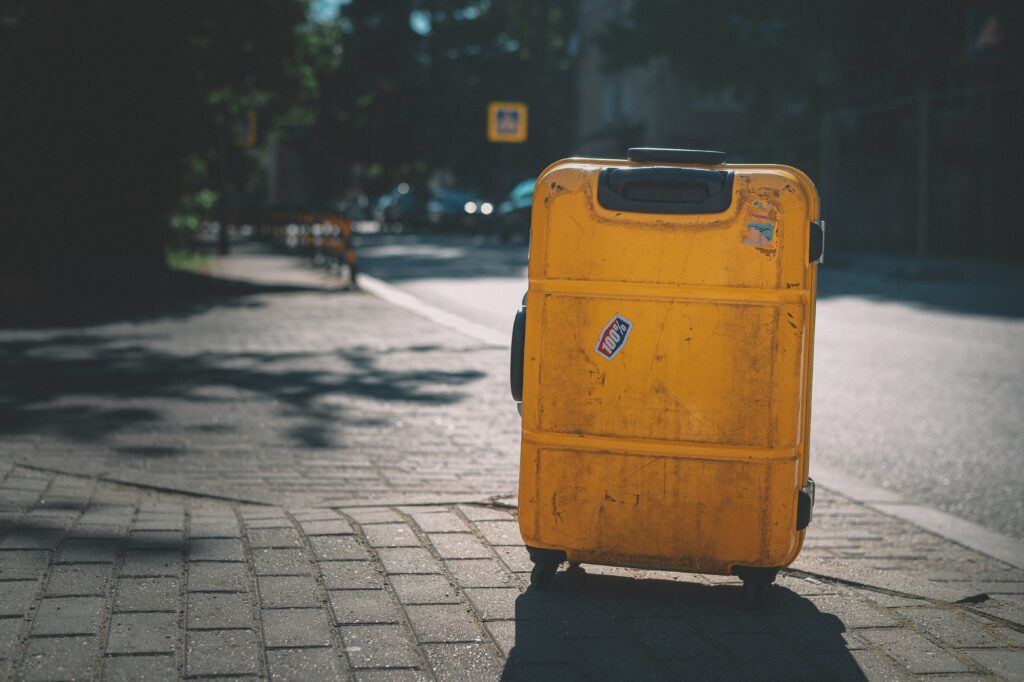Losing luggage at the airport can be a frustrating experience. Instead of relaxing at their destination, travelers often have to buy emergency clothing and spend hours dealing with lost baggage claims. To solve this problem, Lufthansa Group airlines—including Lufthansa, SWISS, Austrian Airlines, Brussels Airlines, and Eurowings—have introduced Apple AirTag tracking to help locate lost bags faster.
How AirTags Help Travelers and Airlines
Apple’s AirTag technology has made it easier for passengers to track their checked luggage in real time. The small Bluetooth device connects to Apple’s Find My network, providing location updates even if a bag is misplaced during transit. Now, Lufthansa Group airlines allow travelers to share their AirTag location with the airline. This feature helps airline staff quickly find and return missing suitcases.
According to Oliver Schmitt, Head of the Lufthansa Group Digital Hangar, integrating AirTag technology has improved baggage handling efficiency. Lufthansa was initially unsure whether AirTags complied with aviation safety rules, but after discussions with regulators, the airline approved their use.
“Customers want bag tracking,” said Tero Taskila, CEO of luxury airline beOnd, who announced plans to implement AirTag technology by mid-2025. Other airlines may follow Lufthansa’s lead as more passengers seek high-tech solutions to protect their luggage.
Why Smart Technology is Changing Baggage Handling
For years, airlines have relied on barcoded luggage tags and manual tracking to locate lost bags. However, traditional methods can be slow, especially if a bag is sent to the wrong destination. AirTags provide an extra layer of security by allowing travelers to monitor their own luggage.
Passengers have already used AirTags to find missing bags before airline staff. In some cases, travelers proved that their “lost” bags were actually sitting in the airport, prompting faster recovery. This tech is a game-changer for reducing stress and improving the overall travel experience.
Baggage mishandling has decreased by nearly 60% from 2007 to 2022, according to industry reports. However, in 2022, baggage delays increased due to staff shortages and high travel demand. This highlights the need for better tracking systems and improved baggage handling procedures.
Tips to Avoid Lost Luggage and Speed Up Recovery
Even with smart technology, passengers should take steps to prevent their luggage from going missing. The International Air Transport Association (IATA) reports that 99% of checked bags arrive at their destination on time, but there are still risks. Here are some simple tips to protect your belongings:
- Use a traditional luggage tag. Include your name, phone number, and email address to help airline staff identify your bag.
- Take a photo of your suitcase. If your bag gets lost, having a clear picture makes it easier to describe to airport staff.
- Report missing baggage immediately. If your bag does not arrive, go to the airline’s baggage claim office before leaving the airport.
- Allow extra time for layovers. Tight transfer times are the most common reason for lost luggage, so choose flights with enough time between connections.
- Consider using an AirTag or similar tracking device. This will give you real-time updates on your bag’s location and help speed up recovery if it goes missing.
Future of Baggage Tracking in the Airline Industry
The success of AirTag tracking could push more airlines to adopt smart luggage solutions. As airports and airlines look for ways to improve efficiency, technology like AirTags may become a standard feature for checked baggage.
In the future, airlines may integrate tracking tools into their own apps, giving passengers full visibility of their luggage from check-in to arrival. More advanced tracking systems could also help reduce mishandled baggage and ensure a smoother travel experience.
For more updates on travel technology and industry news, visit New York Mirror.


